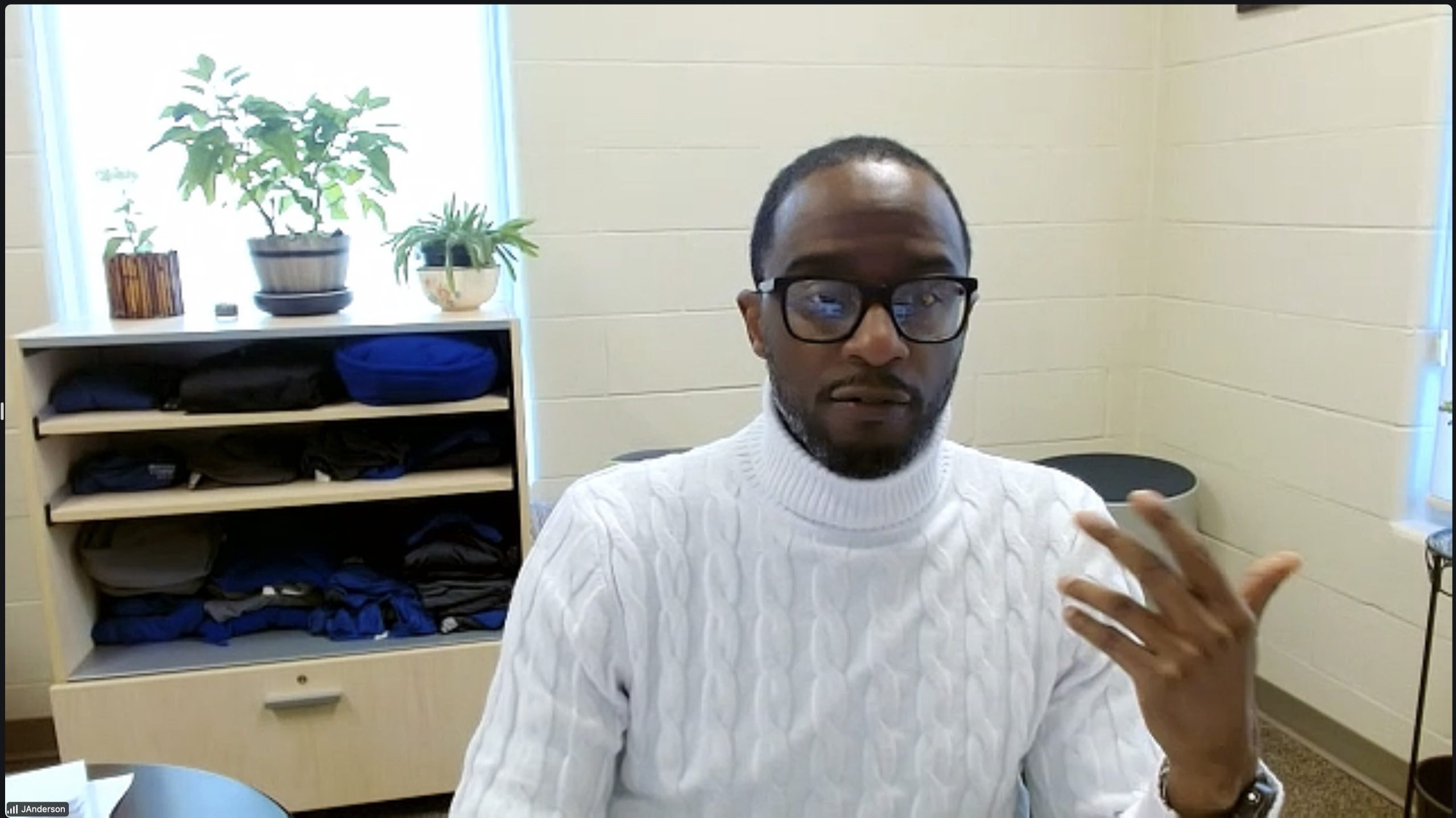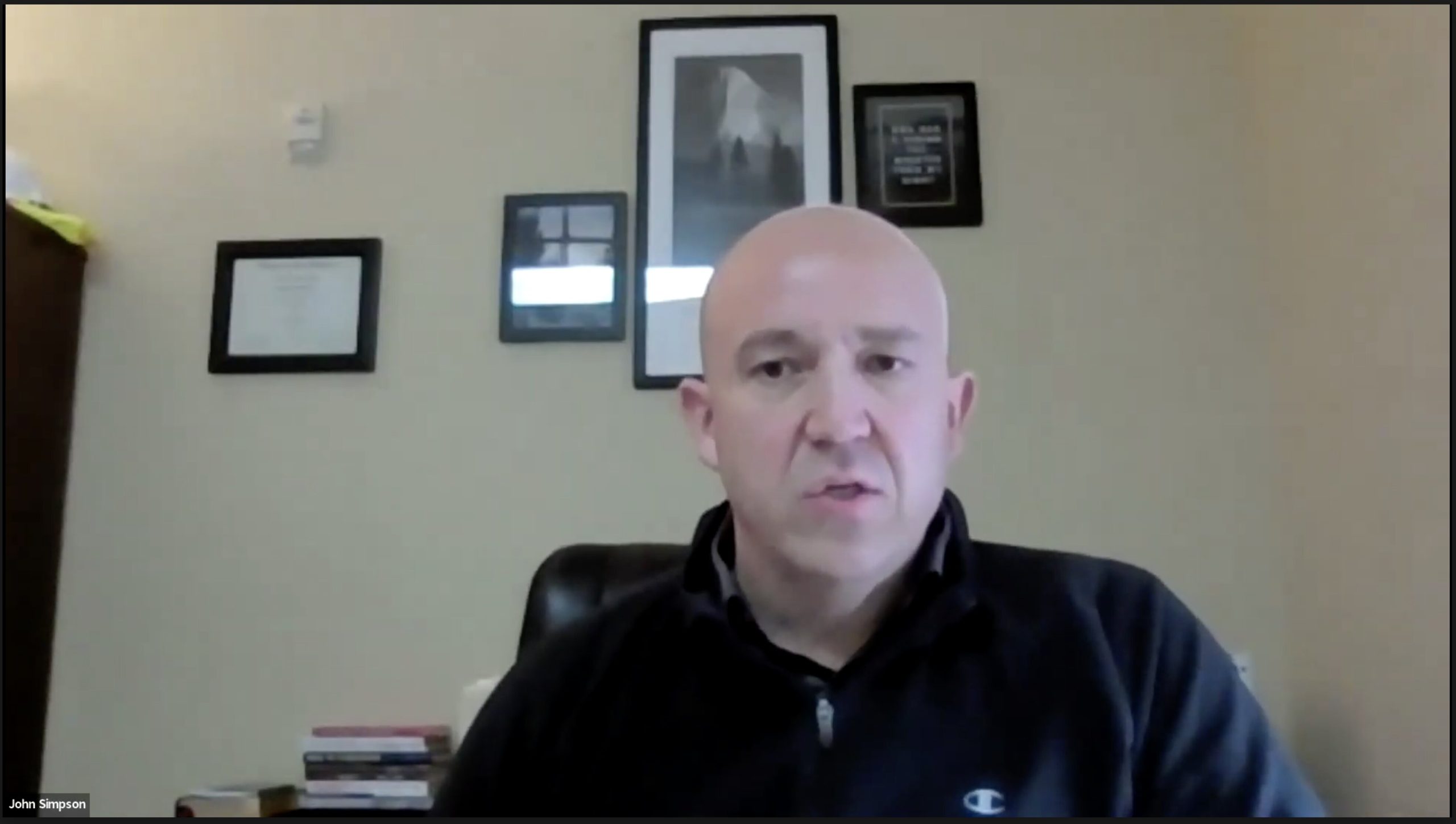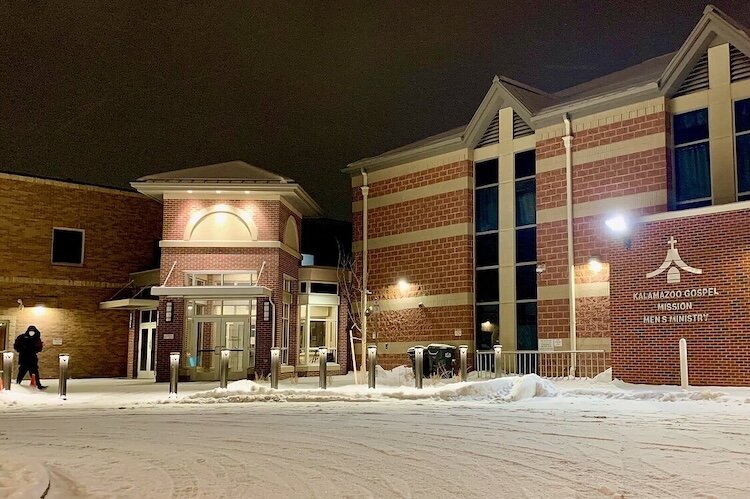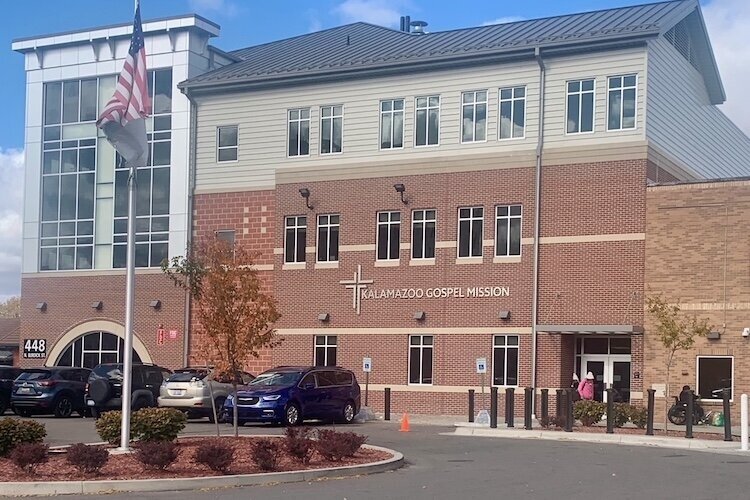Finding answers means discussion with those who are unsheltered, shelter representatives suggest
It's getting harder to operate a shelter for the unhoused as their numbers increase. Representatives of two of Kalamazoo's most recognizable shelters tell Housing Matters what might work to bring those numbers down.
This story is part of Southwest Michigan’s Second Wave’s series on solutions to affordable housing and housing the unhoused. It is made possible by a coalition of buyers funders including Kalamazoo County, the city of Kalamazoo, the ENNA Foundation, and the Kalamazoo County Land Bank.
KALAMAZOO, Michigan — The number of people needing assistance has been on the rise, Kalamazoo Gospel Ministries and Ministry with Community representatives recently told a Housing Matters forum.
At the same time, many solutions to slow the rate of unhoused people in Kalamazoo are out of their hands. The organizations provide guidance for people to get off the street, but they say they seem to be working against other forces driving homelessness.
Pastor John Simpson, Chief Operating Officer at Kalamazoo Gospel Ministries, and Johnny Anderson, Program Director of Ministry with Community, spoke about the growing problem at a Housing Matters forum Nov. 13.
Demand for help ‘mind-blowing’
Kalamazoo Gospel Ministries charted information generally followed the same pattern for 2020-2024, a dip in people they serve for the pandemic years of 2020-2021, then a rise in the following years. The numbers for 2024 didn’t include information from November or December, yet are already higher than in previous years.
Nights-of-stay at the Mission went from a low of 45,361 in pandemic-era 2021, to over double that, 92,272 in January-October 2023. Stays at their family shelter dipped a bit over 2023-’24, but still, 2024’s 23,290 nights there were close to double 2021’s 12,520.
Head-counts of individual guests went from 1,044 in 2020 to 897 in 2021. It has risen to 1,525 so far in 2024.

“So, pretty mind-blowing when you stop and think of, you know, over 1,500 guests have stayed with us at least one time or at least one night so far this year,” Simpson says.
Some of the population who Kalamazoo Gospel Ministries assists are from outside Kalamazoo County. According to self-reported intake data taken January through June, 2024, 43% of intakes were from outside of Kalamazoo County, and 17% were from outside of Michigan.
The top three Michigan cities people came from were Battle Creek, Grand Rapids, and Benton Harbor. Those outside of Michigan came from Illinois, Indiana, and Florida.
“We are currently limiting (intakes) in 2024 from outside of Kalamazoo County because we have a waiting list,” Simpsons says. “We have hit capacity, really, for the first time in a significant amount of time.”
“As folks have called from outside of Kalamazoo County, we have started to proactively tell them that we are at capacity and that we are asking them to seek services within their own county, which is a super-hard conversation to have with folks,” Simpson says.
“We certainly don’t want them to arrive and then not be able to support them,” he adds.
People aren’t just coming to Kalamazoo looking for help. It may look like “Kalamazoo seems to draw (unhoused people). I don’t know if that’s the case,” Simpson says.
Instead, it might be a matter of how the unhoused are a transient population in general.
Simpson has talked to other counterpart organizations outside of the county, “And they will tell me the same thing. That folks are coming from other counties into their own. I talked to Holland Rescue Mission the other day. And he said that 30 percent of the folks staying with him are from outside of their county.”

Local shelters report the number of umhoused they are seeing are up significantly this year.
Ministry with Community’s numbers also rose in recent years.
Over the past two years, they’ve seen a 49% increase in meals served, a 65% increase in services used, and a 20% increase in one-on-one social services meetings, Ministry’s Anderson says.
He’s seeing more need for resources for people identifying as male, more for those 55 and older, and more for people with disabilities.
One disturbing matter both organizations talked about was the lack of help for people who were out on the street though they had medical issues that neither Kalamazoo Gospel Ministry nor Ministry With Community could accommodate.
The Gospel Mission has had to turn people away “because we’re not a medical facility,” Simpson says of the shelter’s limitations.
“You do have to be able to care for yourself, and you have to be able to not be a harm to anyone else. If you can’t shower, go to the bathroom, dress yourself, care for your own wounds or medical issues, then you belong in a rehab facility or some other type of medical facility. So yes, you would be asked to go back to the ER or wherever you came from,” Simpson says. “Our insurance won’t even allow us to house someone in that scenario.”
Anderson says, for example, a member of WMed’s Street Medicine team came to him seeking help for someone who “recently had an amputation for the second time because they had nowhere to go to be able to properly heal. And she really needed somewhere for this person to go because she was afraid that if they didn’t, then they would be in the same predicament again.”
Solutions needed from the community
The need for temporary shelter for people recovering from surgery was part of a long list of barriers and problems Anderson presented — from lack of affordable housing to changes in policies that removed help for unhoused people.
“I don’t like bringing problems to the table unless I have solutions,” Anderson says.
He calls on the community to consider the housing first model (where people are first housed, then have other services added to improve their quality of life). “How can we get all these bright minds together to figure out how we can make (housing first) work here in Kalamazoo?”
Other solutions he presented were rehabbing old homes, encouraging home ownership, providing support for people once they are housed, and including landlords at the table.

There needs to be continuous follow-up with people once they do get housing, Anderson says. “And then that would help, possibly, with reducing the recidivism of homelessness. That would give us a little buffer to be able to actually knock these numbers down and help people out.”
Kalamazoo Gospel Mission and Ministry with Community provide services and connections to help people who are unsheltered. Ministry with Community also partners with agencies like the Disability Network and Integrated Services of Kalamazoo to get people help, Anderson says.
There are a lot of Kalamazoo agencies working on the many issues surrounding the unhoused, he points out, but they need to “come together. Not just talk about the problem, but let’s come up with solutions, and let’s get these hands and minds working to get these results that we’re looking for. I’m not saying it doesn’t happen, but I think we need to do a little bit more collaborating.”
They also need to “include more people with lived experiences to the table,” he says, meaning the people who are experiencing homelessness. “They are the experts of their lives. They’re the experts of this whole experience. And they have a wealth of information that is untapped,” Anderson says.
He gives the example of a woman who’s a double-amputee struggling to get through downtown in her inadequate wheelchair. “She’s crying and she’s sobbing because all across her chest and her arms hurt because she can’t get around.” He’s seeking a way to get a better chair for her.
“It’s little things like that that are getting overlooked because we’re not having those conversations with the people who are living this life,” he says. “So let’s bring them to the table because they might just surprise us on how to solve the problem that we are trying to tackle.”


















